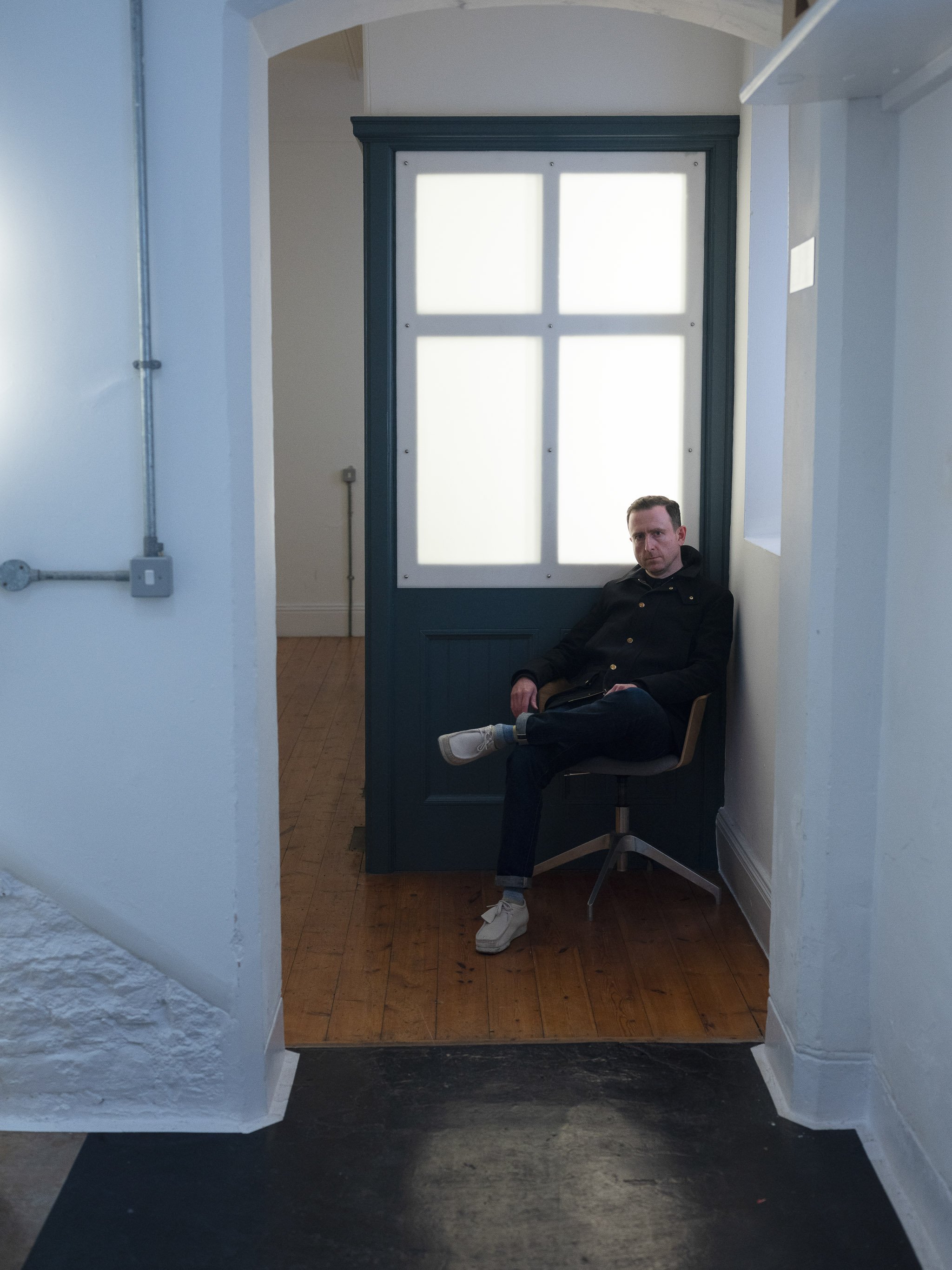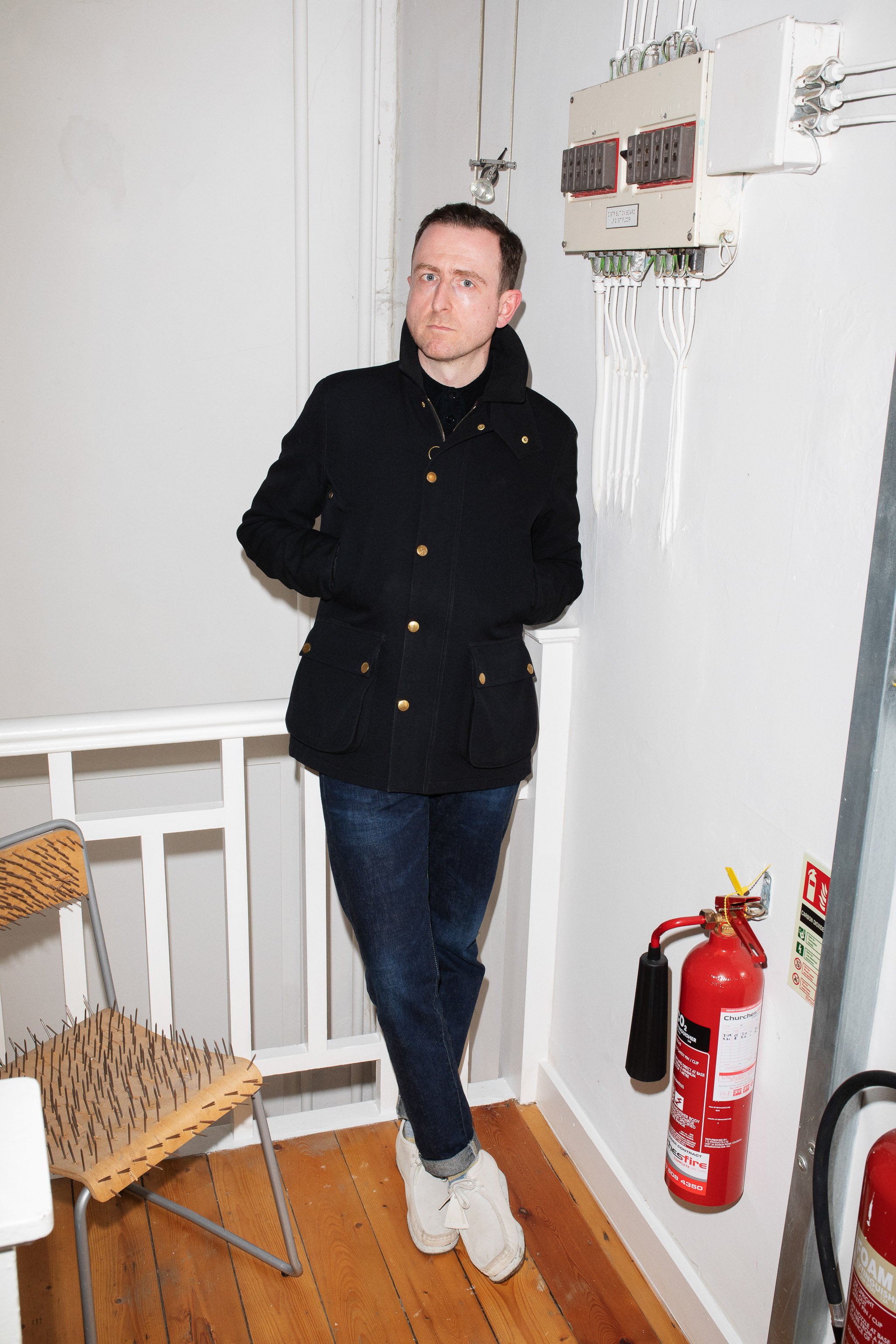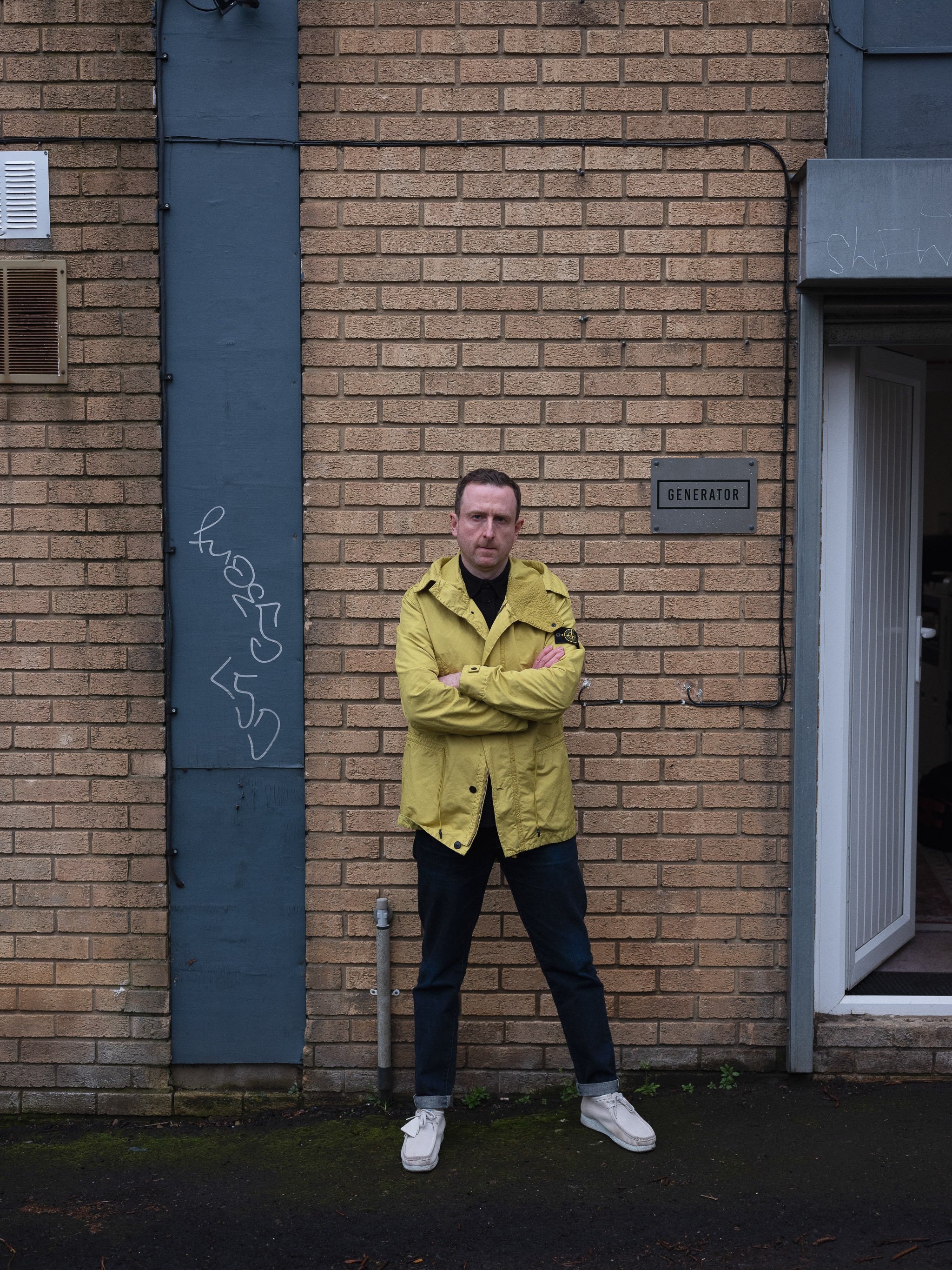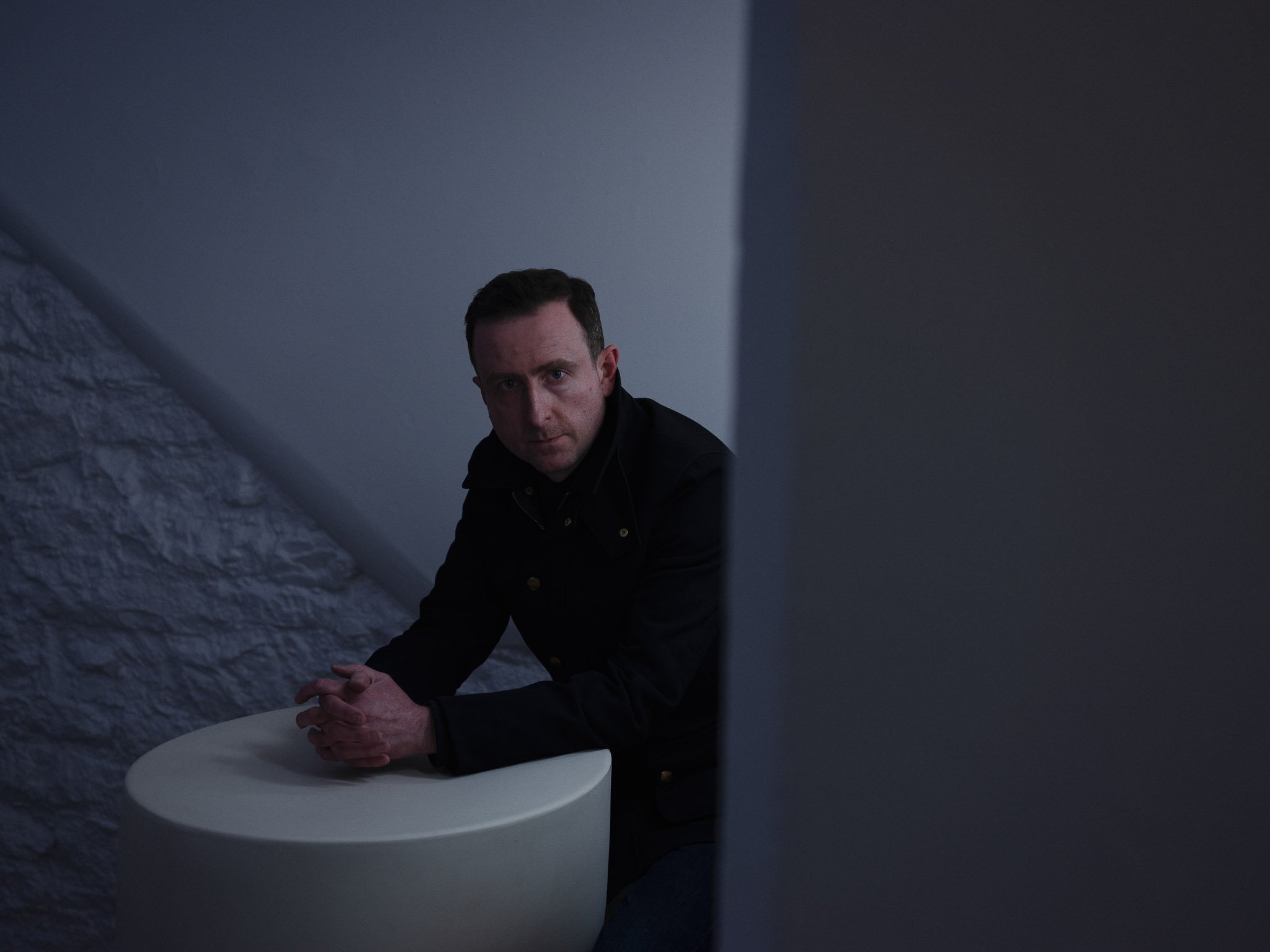Sounding Numbers
What does it take to break into the music industry? Talent, style, persistence, timing?
All have their place as of course does an ability to write great songs. But perhaps a more understated ingredient for success is a mathematical mind.
At least, this is what we can glean from the example of Mick Ross, musician, producer and CEO of Generator, the music development agency for the North East.
In parallel to a 25-year career that has included touring the world with Frankie & The Heartstrings, running music labels and producing records for bands like Lanterns on the Lake, Let’s Buy Happiness and The Lake Poets; Mick has also worked extensively in finance, latterly as Generator’s chief financial officer before taking on the top job in March 2022.
“I come from a council estate, single mother household in Washington. So, from nowt, basically.”
Initially motivated by a recognition that it is always best to have a Plan B when pursuing a career in music, Mick believes that a firm understanding of numbers is critical for the next generation of talent that Generator is trying to nurture.
“These days, musicians have to run their own finances, write their own bids and have their own contracts in place,” he says.
“As an artist, you are your own brand, well before you get a record deal. You create that brand and administer it and treat it like a business because it is a business.”
Given the all-too-common examples of music stars who have been undone by a lack of business acumen and poor money management – Whitney Houston, Marvin Gaye, Judy Garland and Elvis Presley were all crippled by financial (and other) troubles – it might seem that musical virtuosity and financial literacy do not go hand in hand.
Conversely, research has shown that musical training promotes mathematical ability because both activities stimulate the same part of the human brain.
Mick agrees: “If you’ve got a penchant for music, and certainly if you’ve learned through standard music theory, it’s in your brain anyway to have that methodical, pattern-based approach.”
All of this makes Mick seem like the perfect person to lead a creative development agency like Generator, a role which he admits he has coveted but not pursued until now.
“Being perfectly honest, I’ve never been comfortable with being the face of an organisation or the public presenter,” he says.
“That’s why I got heavily into production after quitting being a live musician.”


Mick’s journey in music is one of very humble beginnings in the North East, which is perhaps where this aversion to the spotlight comes from.
“I come from a council estate, single mother household in Washington,” he says. “So, from nowt, basically.”
When the indie scene hit in the 1990s, led by iconic bands like Blur, Suede and particularly Oasis, it inspired a whole generation of would-be musicians across Northern England and in 1996, when a 14-year-old Mick Ross experienced Oasis at Knebworth as his first gig, the path was made clear for a career in music.
Quickly progressing from piano lessons to nylon string guitars bought from Argos to signing his first publishing deal at 17 to do an instrumental project call Soundtrack for a B Movie, it’s fair to say Mick was a quick study.
At 21, Mick joined a band called Minotaurs and created a number of songs which to this day remain the output he is most proud of.
He says: “There were six of us in that band, but the main songwriter was called Andrew Forster and he’s still the best lyricist I’ve ever met. Absolutely phenomenal.
“We got a development deal and signed to a label called Fiction, which was the sister label of Polydor Records.
“They put us in a studio in Glasgow to make a record, but the problem was there was a free fucking bar!”
Releasing around 20 songs over a five-year period, the aspirations of Minotaurs were never quite realised and so Mick found himself moving on from that project to the one he is probably best known for – Frankie & The Heartstrings.
Formed by Sunderland-based musicians Frankie Francis and Michael McKnight, Frankie’s debut record ‘Hunger’ made it into the UK Albums Chart and was followed by extensive touring on the UK circuit and overseas.
“We got to tour the world – Japan, the US, Australia, everywhere in Europe,” says Mick. “It was an incredible journey.”
“You can only see the inside of so many Travelodges before you start to go a bit mental.”
Touring wasn’t always so glamourous though for the Washington-born guitarist, whose dynamic playing style draws influences from all-time greats like Peter Green, John Squire, Dave Gilmour, Johnny Marr and Bernard Butler.
“When it’s good, it’s amazing – when it’s bad, it’s the worst place in the world to be,” Mick explains.
“You can only see the inside of so many Travelodges before you start to go a bit mental.
Mick’s fondest memory of his time with Frankie & The Heartstrings was getting to work with the late Dave Harper, who was the band’s drummer and by all accounts an inspirational figure not just for the rest of the band but for everyone who met him.
Dave passed away in 2021 after suffering complications from a heart condition, leaving behind a proud cultural legacy of promoting local talent, epitomised by the Pop Recs Ltd independent music venue, bar and café that he and other members of Frankie founded in 2013 to promote the second album.
Dave’s passing provided a moment for Mick to reconnect with his old bandmates after he left the band in 2014 to focus on music production, a pursuit that he credits as preparing him better than anything else for becoming a chief executive.
“I feel at home in the studio,” he says. “Production to me is a privilege. You get to train, teach and coach and you’re there to get the best out of each individual that you possibly can.”
Mick continues: “That’s why I believe the part of my career that has equipped me for this job is being a producer – dealing with different personalities, different objectives, different levels of capability.
“In the studio, it’s about the song. The song is king.
“In fact, your two key things are the song and the ability of the people to play that song. It’s the same with a business. It’s about the vision and the people.”


In the short time since Mick has been in charge of Generator, he’s been working to develop a new vision for the organisation, one that is fully focused on music and creating local infrastructure to develop local talent.
“We need to know our USP, and we need to be good at what we’re doing,” adds Mick.
As part of this work, Mick has formed Generator’s first Music Industry Advisory Group (MIAG) bringing together a diverse cohort of artist managers, musicians, lawyers, tour managers, A&R managers and promoters who are shaping the future of the UK music industry.
Including big names such as Keith Harris (Stevie Wonder’s long time representative), Bernard Butler, Hazel Wilde (Lanterns on the Lake), Thom Lewis (Sam Fender) and Cannelle Bencherqi (Ed Sheeran), the new advisory group will provide 1:1 support to artists and creative entrepreneurs participating in Generator’s programmes, while also keeping Mick and the team up to date on the latest issues and trends affecting the music industry.
“It’s a really unique initiative and something I have personally been working on for over a year”, adds Mick.
As he looks to put his own stamp on the North East music scene, Mick has been knocking on the doors of industry giants like Universal, Warner, Sony and also Spotify, YouTube and Amazon Music to encourage them to do more in the region.
He explains: “Even if it’s just one member of staff up here, we want them because unless we create the industry infrastructure here in the North East, it’s just going to be more of the same.”
“In the studio, it’s about the song.
The song is king.”



“Don’t be afraid to ask the questions, don’t be afraid to listen to your gut – you’re only going to get so many chances to be in the room with the person who can change your career.”
Breaking down barriers and not being afraid to pursue his goals and aspirations is something Mick has had to learn from experience over the years. The seasoned live performer has struggled with epilepsy his whole adult life, a condition that prevented him from attending the Academy of Contemporary Music in Guildford in his early twenties.
Mick explains: “It’s the kind of epilepsy that when it hits, there’s no control. And it goes on for a long time. You can’t walk afterwards; you can’t talk afterwards. It’s extremely debilitating.”
With the condition now fully under control, Mick wishes he had been less afraid and just went to Guildford when he had the chance. It’s ruminations like these that motivate him to get what he wants today. His advice for others is not to let anything get in their way.
“Don’t be afraid to ask questions, don’t be afraid to listen to your gut – you’re only going to get so many chances to be in the room with the person who can change your career,” he says.
Thanks to initiatives like MIAG and the leadership of people like Mick who are working to create new creative industries clusters outside of London, these opportunities to be in the room with the person who can change your career are only going to increase.





